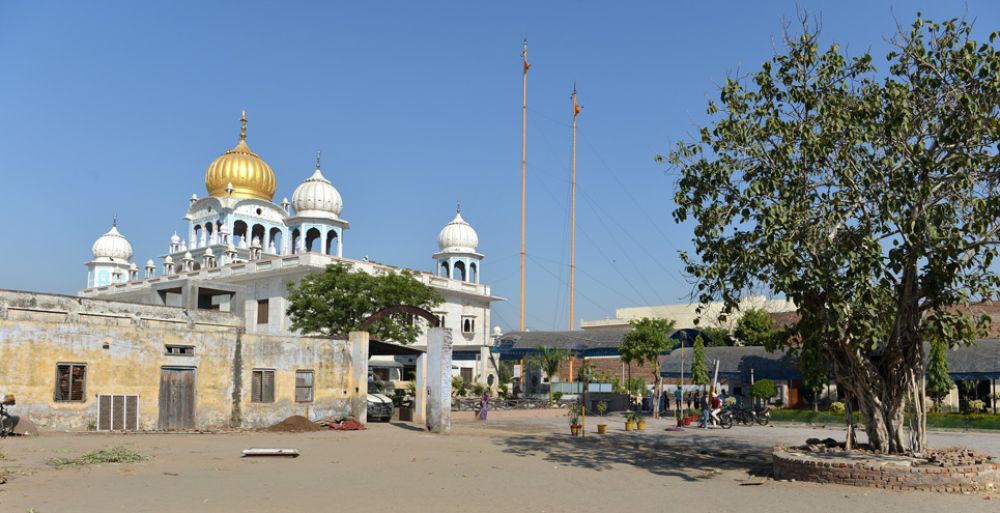

Gurudwara Manji Sahib is located in Ambala, a city in the state of Haryana, India. It stands as a significant pilgrimage site for Sikhs worldwide and holds a special place in the historical and spiritual landscape of the region. The Gurudwara is associated with the revered Sikh Gurus and has been a symbol of peace and devotion for centuries.
The history of Gurudwara Manji Sahib is deeply intertwined with the life and teachings of the Sikh Gurus, especially Guru Tegh Bahadur and Guru Gobind Singh. The name "Manji" refers to the bed-like seating, which was used by the Sikh preachers appointed by Guru Gobind Singh to spread the teachings of Sikhism. It is believed that Guru Tegh Bahadur rested here during his journey, and Guru Gobind Singh, at a tender age, blessed the site with his presence. Thus, the Gurudwara is a cornerstone for Sikh followers that commemorates the Guru's connection with Ambala.
Tourism at Gurudwara Manji Sahib began as a religious journey for Sikh devotees and has grown significantly over the years. While the primary influx of visitors remains those on a spiritual path, it has also attracted tourists interested in exploring the rich cultural and historic tapestry of Sikhism. Many people visit the Gurudwara to learn about its historical roots, to partake in the sense of unity through community services like Langar (free community meal), and to experience the tranquility of its surroundings.
In recent years, religious tourism in India has seen a resurgence, with Gurudwara Manji Sahib benefiting from this trend. Travelers, both domestic and international, are seeking immersive cultural experiences, and the Gurudwara provides this through participation in religious ceremonies, festivals, and local customs. One of the most notable trends is the digitalization affecting the tourism sector. A growing number of visitors arrange their visits via online platforms or mobile applications, where they can find scheduling information for special events, prayer times, and accommodations near the Gurudwara. There is also a trend in eco-friendly and sustainable tourism, which has influenced facilities around Gurudwara Manji Sahib to adopt eco-friendly practices to cater to environmentally-conscious visitors. The Gurudwara itself champions communal responsibility and service to others, which aligns with the sustainable tourism ethos. Furthermore, virtual tourism has played a part during times when travel was not possible, such as during the COVID-19 pandemic, with virtual tours and live streaming of events from Gurudwara Manji Sahib allowing devotees and tourists to engage with the site from afar.
Visitors to Gurudwara Manji Sahib can expect a serene and respectful atmosphere. It is recommended to dress modestly and cover one's head as a sign of respect upon entering the Gurudwara. One can partake in the regular services, community activities, and explore the historical exhibits that highlight the Gurudwara's significance in the annals of Sikh history. The best time to visit is during the festive months when special programs and events are conducted, providing a deeper insight into the religious practices and celebrations of the Sikhs.
The devotion of the pilgrims, combined with the management's dedication to preserving the sanctity and historical essence of Gurudwara Manji Sahib, continues to make it a beacon for those seeking spiritual enrichment in the heart of Haryana, India.